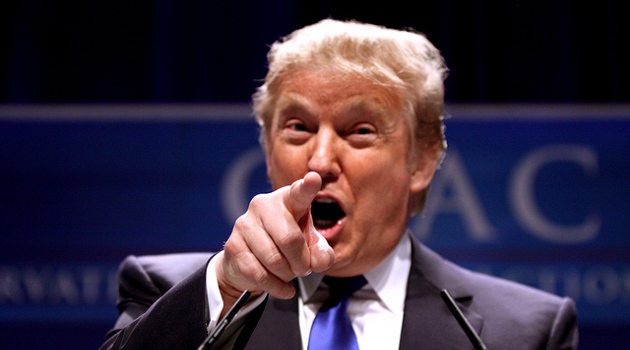At this stage, it’s quite likely that Donald Trump will be the Republican presidential nominee. Conventional wisdom suggests that this means Democrats will win in November. On the other hand, conventional wisdom also told us that Trump would never get this far. So it’s unclear what will happen in the general election, particularly given the ethical cloud surrounding the presumptive Democratic nominee.
So let’s contemplate what a potential Trump Administration would mean for economic liberty and American prosperity.
Would the United States become more like Hong Kong, with a smaller burden of government and less intervention? Or more like France, with higher taxes and spending, along with additional cronyism and red tape?
The honest answer is that I don’t know. He has put forth a giant tax cut that is reasonably well designed, so that implies more prosperity, but is he serious about the plan? And does he have a plan for the concomitant spending reforms needed to make his tax proposal viable?
He also has lots of protectionist rhetoric, including a proposal for a 45 percent tax on Chinese products, which implies harmful dislocation to the American economy. Is he actually serious about risking a global trade war, or is his saber rattling just a negotiating tool, as some of his defenders claim?
And what about entitlement programs, which arguably represent the greatest long-term threat to America’s economy? Trump certainly gives the impression that he thinks Social Security, Medicare, and Medicaid don’t need to be reformed. Is he really serious when he makes this claim?
If we take what he says seriously, Trump is more statist than every Republican who sought the GOP nomination but less statist than both Hillary Clinton and Bernie Sanders. Though I confess I’m basing that opinion solely on whether I agreed with the candidates, as measured by the I-Side-With political quiz.
So let’s see what others have to say.
My colleague David Boaz, writing for National Review, is not impressed.
Without even getting into his past support for a massive wealth tax and single-payer health care, his know-nothing protectionism, or his passionate defense of eminent domain, I think we can say that this is a Republican campaign that would have appalled Buckley, Goldwater, and Reagan.
Speaking of National Review, Kevin Williamson argues that Trump represents the worst of cronyism.
The Tea Party’s fundamental complaint, which was the same complaint put forward by Occupy Wall Street minus the Maoist daydreaming, is that there exists a corrosive and distasteful relationship between certain politically connected businesses and the politicians who are both their patrons and their clients. Donald Trump is the face of that insalubrious relationship, a lifelong crony capitalist who brags about buying political favors.
Last but not least, my former UGA economics professor Paul Rubin (now at Emory), in a column for the Wall Street Journal, explains that Trump (and Sanders) incorrectly thinks the economy is a fixed pie.
Messrs. Trump and Sanders have been led astray by zero-sum thinking, or the assumption that economic magnitudes are fixed when they are in fact variable. If the world is zero-sum, then the number of jobs is fixed, as is gross domestic product. In Mr. Trump’s mind, if there are more Mexican workers in the U.S., then American workers must lose their jobs. In the real, positive-sum world where Mr. Trump doesn’t live, Mexican workers also consume, thus increasing GDP and creating new jobs. …Similar arguments apply to Mr. Trump’s analysis of Chinese imports. In a world of fixed GDP and prices, imports of goods from China merely replace goods that otherwise would have been produced by American workers. In the real world, imports reduce prices and increase GDP, so workers, who are also consumers, benefit from imports of lower-cost goods and increase their consumption of other goods. …Zero-sum thinking persists because it is superficially appealing. Mr. Trump’s policies would in theory benefit Americans and increase jobs. …In the actual, positive-sum world we live in, their policies…would, if adopted, lead to an economic depression that would make the 1930s look prosperous.
I actually think Prof. Rubin overstates his conclusion. It took a lot of truly awful policies by Herbert Hoover and Franklin Roosevelt to produce the Great Depression.
Barack Obama didn’t come close to Hoover and Roosevelt with his bad policies and I suspect even the bad version of Donald Trump would (thankfully) fall short as well.
———
Image credit: Gage Skidmore | CC BY-SA 2.0.

